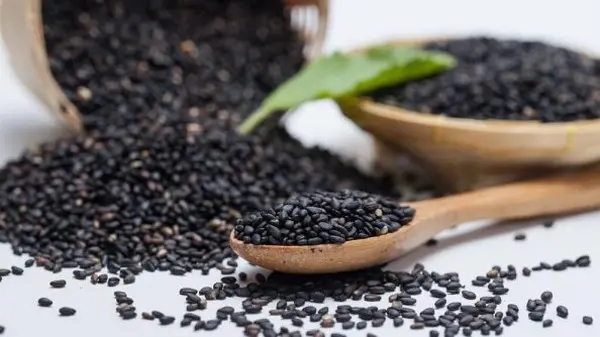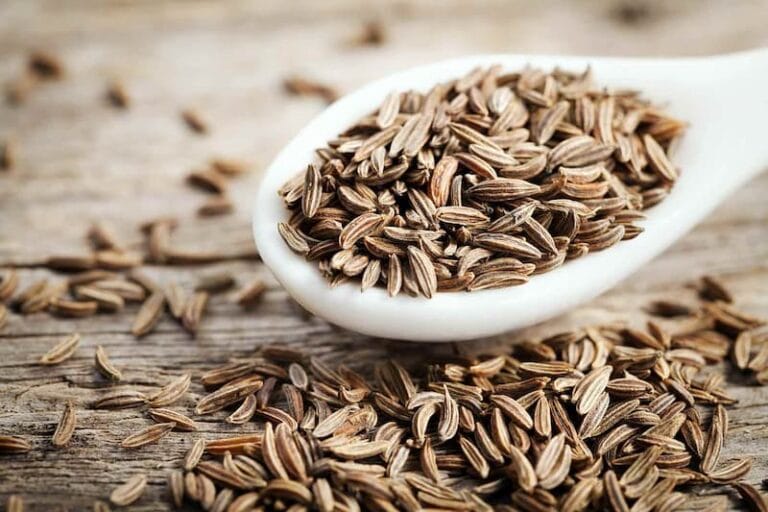Introduction to Black Seed
Black seed, scientifically known as Nigella sativa, originates from the flowering plant native to South and Southwestern Asia. This small, black, and somewhat triangular seed has a rich history, dating back thousands of years, where it has been utilized in various traditional medicines. The historical significance of black seed is particularly notable in ancient civilizations, including the Egyptian, Greek, and Roman cultures, where it was revered for its therapeutic properties. The seeds have been found in the tomb of Pharaoh Tutankhamun, highlighting their value even in ancient times.
In traditional medicine, black seed has been employed for a plethora of ailments, ranging from gastrointestinal issues to respiratory conditions. It is often lauded for its anti-inflammatory, antioxidant, and immune-boosting capabilities. Furthermore, it is commonly used in culinary practices, providing flavor and potential health benefits in various dishes. As the modern wellness movement has gained traction, black seed has undergone a resurgence, leading to increased interest among health enthusiasts and researchers alike.
The popularity of black seed in contemporary discussions surrounding health can be attributed to its diverse range of compounds, including thymoquinone, which is known for its potential health benefits. These include supporting immune function, enhancing memory, and providing relief from allergies and asthma. With growing scientific validation and anecdotal evidence, black seed has positioned itself as a natural supplement of interest in the fields of health and wellness.
As we delve deeper into the multiple health benefits of black seed, it becomes clear that this ancient seed carries a treasure trove of potential that deserves attention in modern health discourse. Understanding its traditional uses lays the groundwork for appreciating the role of black seed in contemporary nutritional and medicinal applications.

Nutritional Profile of Black Seed
Black seed, scientifically known as Nigella sativa, is highly regarded not only for its flavorful culinary uses but also for its impressive nutritional profile. Rich in essential nutrients, black seed contains a variety of components that contribute significantly to health benefits. Among these, thymoquinone is a prominent bioactive compound present in the oil extracted from black seeds. This compound is known for its antioxidant and anti-inflammatory properties.
In addition to thymoquinone, black seed is a good source of essential fatty acids, including omega-3 and omega-6 fatty acids. These healthy fats play a crucial role in maintaining heart health, improving skin conditions, and supporting brain function. Black seed also contains a spectrum of vitamins such as vitamin A, which contributes to eye health, and vitamin C, known for its immune-boosting properties.
Minerals are another important aspect of black seed’s nutritional value. It contains significant amounts of calcium, iron, potassium, and magnesium. Calcium is vital for bone health, while iron is essential for the formation of red blood cells. Potassium helps regulate blood pressure, and magnesium is important for muscle and nerve function, enhancing overall health.
Furthermore, black seed is rich in dietary fiber, which aids in digestion and can contribute to maintaining healthy blood sugar levels. This combination of nutrients not only reinforces its status as a functional food but also highlights the potential for black seed to assist in various health aspects, including memory enhancement and immune support.
Incorporating black seed into one’s diet can provide a host of health benefits, making it a valuable addition to both culinary practices and health regimens. With its diverse nutrient composition, black seed stands out as a powerful natural supplement worth considering for anyone looking to enhance their overall well-being.
Health Benefits of Black Seed
Black seed, known scientifically as Nigella sativa, has been recognized for its numerous health benefits for centuries. Its therapeutic properties are attributed mainly to a compound called thymoquinone, which has demonstrated antioxidant and anti-inflammatory effects in various studies. One of the significant advantages of black seed is its potential in alleviating respiratory conditions, such as asthma and allergies. Research indicates that thymoquinone can help reduce airway inflammation and improve lung function, providing relief to individuals suffering from these ailments.
Another area where black seed shows promise is in managing diabetes. Several studies have pointed to its ability to lower blood sugar levels and improve insulin sensitivity. A randomized controlled trial revealed that consuming black seed oil significantly reduced fasting blood glucose and HbA1c levels, indicating its potential role as an adjunct therapy for type 2 diabetes. Additionally, its antioxidant properties may help combat oxidative stress, which is a contributing factor in the progression of diabetes.
Heart health is another crucial benefit linked to black seed consumption. The seeds have been shown to possess cholesterol-lowering effects, helping to reduce total cholesterol and triglyceride levels. Moreover, the anti-inflammatory qualities can contribute to improved cardiovascular function by decreasing arterial plaque buildup. A systematic review highlighted that regular intake of black seed could be beneficial in managing hypertension and enhancing overall heart health.
In summary, the health benefits associated with black seed are supported by various scientific investigations. Its effectiveness in addressing respiratory issues, managing diabetes, and promoting heart health underscores its role as a valuable natural remedy. By incorporating black seed into one’s dietary regimen, individuals may experience significant improvements in their overall well-being.

Enhancing Memory with Black Seed
Black seed, derived from the Nigella sativa plant, has attracted attention for its potential benefits in enhancing memory and cognitive function. The primary active ingredient in black seed, thymoquinone, is believed to play a pivotal role in promoting mental clarity and improving focus. Thymoquinone is a potent antioxidant, which not only helps reduce oxidative stress in the brain but also supports overall neuronal health. A healthy brain environment is essential for optimal cognitive performance and memory retention.
Various studies have explored the impact of black seed on cognitive abilities. Research indicates that the antioxidant properties of thymoquinone can lead to improved synaptic function, allowing for better communication between neurons. This better communication can result in enhanced cognitive performance, including memory retention and recall. Moreover, a study published in the journal “Phytotherapy Research” highlighted that participants who incorporated black seed into their diets exhibited noticeable improvements in memory tests compared to those who did not.
In addition to thymoquinone, black seed contains other bioactive compounds such as alpha-hederin and beta-sitosterol, which may also contribute to its nootropic effects. These compounds have been studied for their potential to support brain health, reduce inflammation, and protect against neurodegenerative diseases. The cumulative effect of these ingredients suggests that black seed may serve as a valuable supplement for individuals seeking to enhance their cognitive functions, particularly in terms of memory.
While anecdotal evidence and preliminary research support the role of black seed in cognitive enhancement, further studies are necessary to establish definitive connections and understand the underlying mechanisms. Nevertheless, the existing evidence illustrates the promising potential of black seed as a natural nootropic agent that could assist in memory enhancement and overall cognitive function.
Boosting Immunity: The Role of Black Seed
Black seed, scientifically known as Nigella sativa, has garnered attention for its potential in enhancing immune function. Traditionally used in various cultures for its therapeutic properties, recent research has provided insights into how black seed strengthens the immune system, enabling the body to better combat infections and diseases. The seed contains thymoquinone, an active compound that has demonstrated powerful antioxidant and anti-inflammatory properties. These characteristics are critical in modulating the immune response and reducing the risk of chronic illnesses.
Regular consumption of black seed oil or seeds can contribute to improved immune responses, primarily by promoting the production of immune cells. Studies indicate that components of black seed can enhance the activity of T-lymphocytes and natural killer cells, which play a vital role in defending the body against pathogens. Moreover, black seed may help regulate the production of cytokines, proteins that are crucial for cell signaling in immune responses. By maintaining a healthy cytokine balance, black seed aids in reducing excessive inflammation and improving overall immune function.
Beyond its immunomodulatory effects, black seed also exhibits properties that can assist in managing various inflammatory conditions, such as asthma and rheumatoid arthritis. Research suggests that the anti-inflammatory effects of black seed may alleviate symptoms associated with these conditions, allowing individuals to experience improved respiratory function and reduced joint pain. Additionally, its antioxidant properties help neutralize free radicals, thereby reducing oxidative stress, which is implicated in numerous diseases.
In conclusion, black seed represents a valuable natural approach to enhancing immunity. Its unique combination of active compounds supports the immune system’s ability to fight off infections and manage inflammatory responses, making it an essential inclusion in a health-conscious diet.
How to Incorporate Black Seed into Your Diet
Incorporating black seed into your daily diet can be a rewarding endeavor, given its numerous health benefits, including immune support and potential memory enhancement. There are several ways to do this, allowing for flexibility based on personal preferences and availability.
One common form of black seed is the oil, which can be easily added to meals. A typical serving size is about one teaspoon per day. This oil can be drizzled over salads, mixed into smoothies, or added to dishes after cooking to retain its nutritional properties. Its distinct, slightly peppery flavor pairs well with vinegar or citrus-based dressings, making it an excellent addition to salad dressings.
In addition to oil, black seed powder is a versatile option that can be incorporated into various recipes. To maximize the health benefits, a suggested serving size would be one to two teaspoons daily. This powder can be mixed into yogurt, oatmeal, or baked goods. For a simple and nutritious smoothie, blend the powder with fruits, spinach, and a milk or milk alternative for a health boost.
For those who prefer a more convenient approach, black seed capsules are widely available in health stores. These capsules provide a practical alternative for individuals seeking to avoid the taste of oil or powder. When using capsules, it’s essential to follow the dosage instructions on the product label to ensure optimal intake.
Experimenting with different forms of black seed can help you discover which method works best for you. Whether you choose oil, powder, or capsules, integrating black seed into your diet can enhance your overall wellness and support your health goals. By making small changes to your meal preparation and ingredients, you can easily experience the benefits that black seed has to offer.
Precautions and Side Effects of Black Seed
Black seed, known scientifically as Nigella sativa, is lauded for its numerous health benefits; however, it is essential for consumers to be aware of potential precautions and side effects associated with its use. Although generally considered safe for most individuals, adverse reactions may occur, particularly when consumed in excessive amounts or alongside certain medications.
One important consideration is the possibility of interactions with various drugs. Black seed has the potential to affect the metabolism of certain medications, particularly those that are processed by the liver. This interaction may either enhance or inhibit the effectiveness of these drugs, leading to unwanted complications. It is crucial for individuals on medication, especially blood thinners or anti-hypertensives, to consult with healthcare providers before incorporating black seed into their regimen.
Allergic reactions constitute another safety concern. Some individuals may experience hypersensitivity to black seed, which can manifest as skin rashes, upset stomach, or respiratory problems. Prior to consuming black seed, individuals with known allergies or underlying health conditions, such as asthma, should undergo appropriate medical assessments.
Furthermore, recommended dosage plays a vital role in ensuring safety. While studies often assess the efficacy of black seed in doses ranging from one to three grams daily, exceeding this limit can increase the risk of side effects. Pregnant and breastfeeding women should also exercise caution, as adequate studies on the safety of black seed during these periods are limited.
Lastly, if gastrointestinal issues occur after consumption, it may signal intolerance and should be further evaluated. By understanding these precautions and potential side effects, individuals can make informed decisions regarding the responsible use of black seed while maximizing its health benefits.

Scientific Research on Black Seed
Numerous studies have contributed to the growing body of evidence supporting the health benefits of black seed, or Nigella sativa, which has been utilized for centuries in traditional medicine. Recent research focuses on various therapeutic effects, particularly in the realm of health, memory enhancement, and immune support. A notable clinical trial published in the journal “Phytotherapy Research” demonstrated that black seed oil significantly reduced markers of inflammation in patients suffering from chronic inflammatory conditions. This suggests potential applications of black seed in managing autoimmune diseases and other related health issues.
Furthermore, a study published in “Neuropharmacology” explored the cognitive enhancement properties attributed to black seed. The researchers found that thymoquinone, a key component of black seed, exhibited neuroprotective effects, promoting memory retention and cognitive function in animal models. These findings align with traditional claims regarding the herb’s ability to support mental clarity and memory function. As cognitive decline becomes increasingly prevalent in an aging population, the implications of such research could be substantial.
The impact of black seed on immune system functionality has also garnered attention. A systematic review in “Journal of Immunology Research” highlighted black seed’s ability to modulate immune responses. Several studies within the review indicated that black seed extracts enhance the activity of immune cells, such as T-cells and macrophages, thereby bolstering the body’s defense mechanisms. These properties underscore black seed’s potential as a natural alternative in promoting immune health, particularly in times of increased vulnerability to infections.
Overall, the scientific scrutiny surrounding black seed validates its revered status in holistic health practices. The compelling evidence emerging from various studies provides a credible foundation for further exploration into its health benefits, memory enhancement capabilities, and its role in immune support.
Conclusion: The Future of Black Seed in Health and Wellness
As we explore the future of health and wellness, incorporating black seed into daily practices emerges as a compelling avenue worth considering. Historically, black seed has been revered for its multitude of benefits, ranging from bolstering the immune system to enhancing memory. Its rich composition, which includes thymoquinone and other bioactive compounds, plays a pivotal role in promoting overall health. As modern medicine increasingly seeks to integrate holistic remedies, black seed stands out as a natural option that aligns with contemporary health trends.
In reviewing the health benefits associated with black seed, various studies illustrate its potential as a complementary approach to overall well-being. The seeds have shown promise in improving immune responses and may aid in addressing chronic conditions. Additionally, the cognitive enhancement properties attributed to black seed can lead to improved mental clarity and focus, making it an appealing supplement for individuals keen on optimizing their cognitive functions. These factors position black seed not only as a traditional remedy but also as an essential component of modern health strategies.
Encouraging the inclusion of black seed in one’s health regimen invites individuals to take an active role in their wellness journey. It is essential for consumers to appreciate the relevance of natural supplements, such as black seed, in their daily lives. As more research emerges and the understanding of its comprehensive benefits deepens, there is an opportunity for a broader adoption of black seed in dietary practices.
In conclusion, the future looks promising for black seed as a holistic remedy. Its blend of health benefits, cognitive enhancement potential, and immune support makes it a valuable addition to the health and wellness landscape. Ultimately, by championing the integration of black seed into wellness routines, individuals may experience profound benefits that enhance their quality of life.








